
How students shaped Ukrainian revolutions
On November 17, the world celebrates International Students' Day. Nowadays, this day is often associated with youth and fun. However, it was introduced after the police and SS units suppressed several peaceful demonstrations in Prague in 1939
It was on November 17 that mass arrests of Czech students took place in university towns. Nine leading representatives of student organizations were executed, over 1,200 were arrested and sent to a concentration camp. Soldiers broke into dormitories, beat students, and took them to the outskirts of Prague. There they were forced to fall to the ground, and the Germans stepped on their necks with their boots.
Ukrainian students have also always been fearless and in the forefront of the fight for their values, national idea, and independence. Sometimes with no regard of danger or fear of repression, imprisonment, or torture.
On Student's Day, Espreso talked to the heroes of three Ukrainian revolutions: the Revolution on Granite, the Orange Revolution, and the Revolution of Dignity. Our interviewees were students at the time and participants in historical events.
Revolution on Granite - a prologue to Ukrainian independence
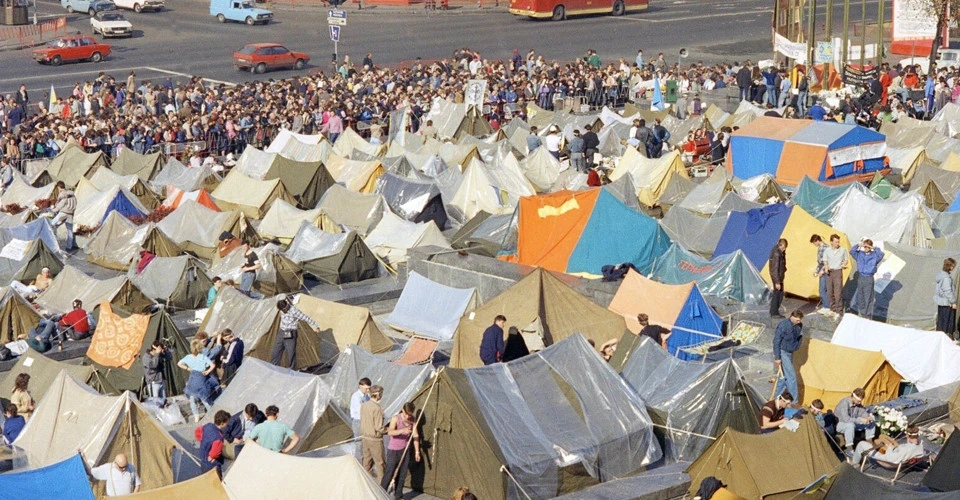
In October 1990, a political hunger strike of students took place in Kyiv, which was later called the Revolution on Granite. It marked the first successful non-violent political protest against the communist government in the Ukrainian SSR. The protest involved several hundred students, with 137 of them engaging in hunger strikes lasting from one to 12 days. Within a short span, the tent city expanded to include several hundred permanent residents and attracted thousands of people who gathered on Maidan, the central square of Kyiv, daily.
Serhiy Rudenko, a prominent journalist, publicist, and host on the Espreso TV channel, was a 20-year-old student at Taras Shevchenko National University of Kyiv. Despite the potential risk of expulsion from the university, he became an active participant in the Revolution on Granite.
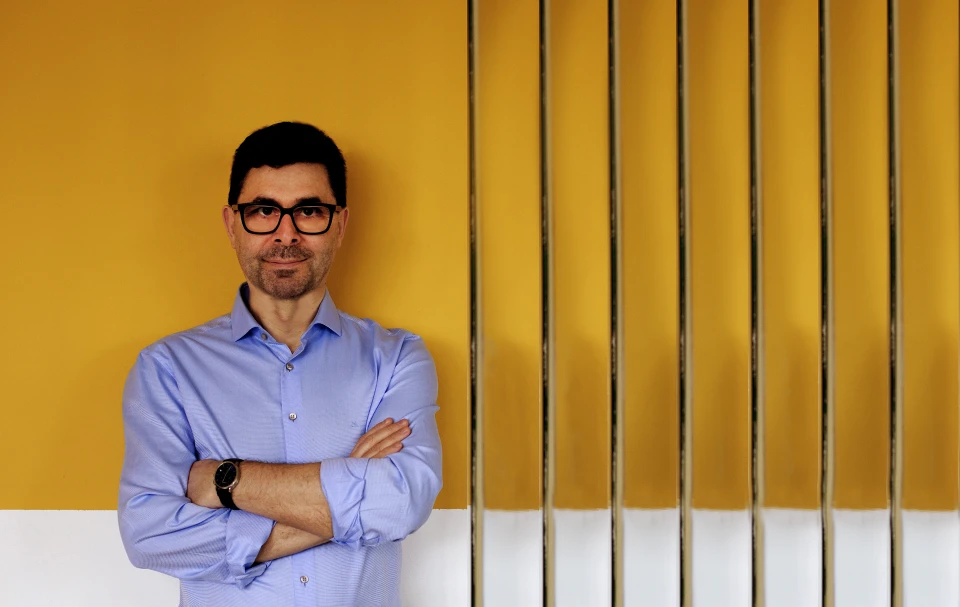
"In the late 1980s, a special type of people was being formed in society who could be called representatives of the national liberation movement. In the capital, in particular at the Kyiv State University, where I studied, there were very active students and student movements. When the Revolution on Granite began, virtually all conscious students took to the streets of Kyiv to support those on hunger strike on Maidan (then known as October Revolution Square)," Rudenko recalls.
During that period, numerous young people advocated for Ukraine's independence from the USSR, expressing their support by wearing homemade blue and yellow badges on their jacket lapels.
"It carried the risk of being apprehended by the KGB or the police for this, to get expelled from the university. But we were not afraid. We were young, stubborn, and persistent. Therefore, we believed in the Ukrainian state and independence. Now, analyzing the events of that time, I conclude that it was Ukrainian students who finally destroyed Moscow's illusions about creating or reforming a union state into another state based on the Soviet Union. We were fulfilling a historical mission, even though we were not fully aware of it at the time," the publicist says.
What Serhiy Rudenko remembers most is the ease with which students went out to protest in 1990.
"Young people had nothing to lose back then. Most of us had absolutely nothing but freedom. We had no families, no wealth, we had nothing. That's why we were quick enough to go to any protest and quickly organize. I feel nostalgic when I think back to those times. At that time, in those hours, you were happy because you felt the elbow of those who stood next to you. We felt like a single protest organism that took to the streets of Kyiv against the Soviet regime. We perceived everything that was happening around us as a prologue to Ukrainian independence. We saw people around us changing, we realized that history was happening before our eyes. We were absolutely happy that our own state, new opportunities, and a completely different life than in the USSR were waiting for us," the journalist recalls.
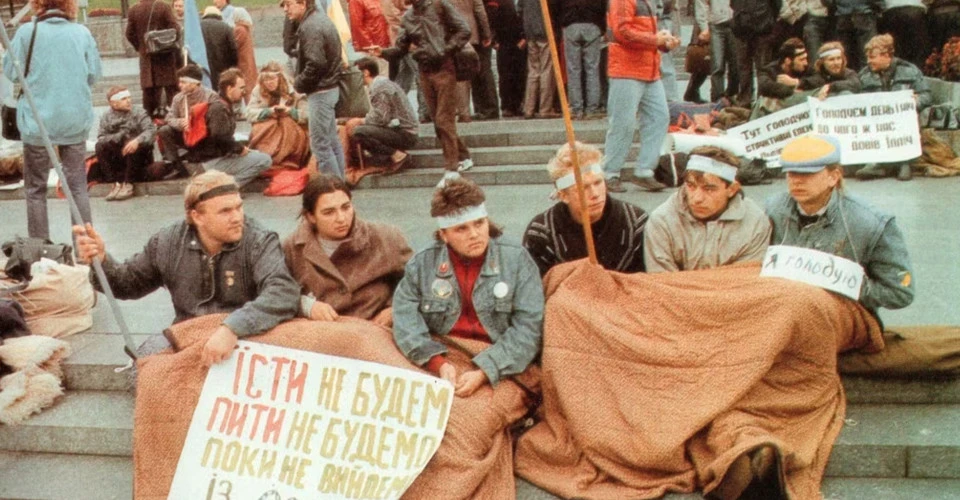
The revolution on Granite turned into a general student strike, students began to seize university buildings, and about a hundred thousand workers, students, and ordinary people gathered on the Maidan. On October 17, the Verkhovna Rada decided to partially meet the students' demands with 314 votes in favor. This resulted in the dismissal of Vitaliy Masol as the head of the Council of Ministers of the Ukrainian SSR, the passage of a law allowing Ukrainians to perform military service only on the territory of the republic, and the decision not to sign a new union treaty.
The Orange Revolution - a bloodless battle for the right to choose
Massive fraud in the 2004 presidential election in favor of pro-government candidate Viktor Yanukovych also sparked massive protests - the Orange Revolution. Youth and student organizations took an active part in it: Pora (It's Time), Chysta Ukraina (Clean Ukraine), Studentska Khvylia (Student Wave), and Sprotyv (Resistance).
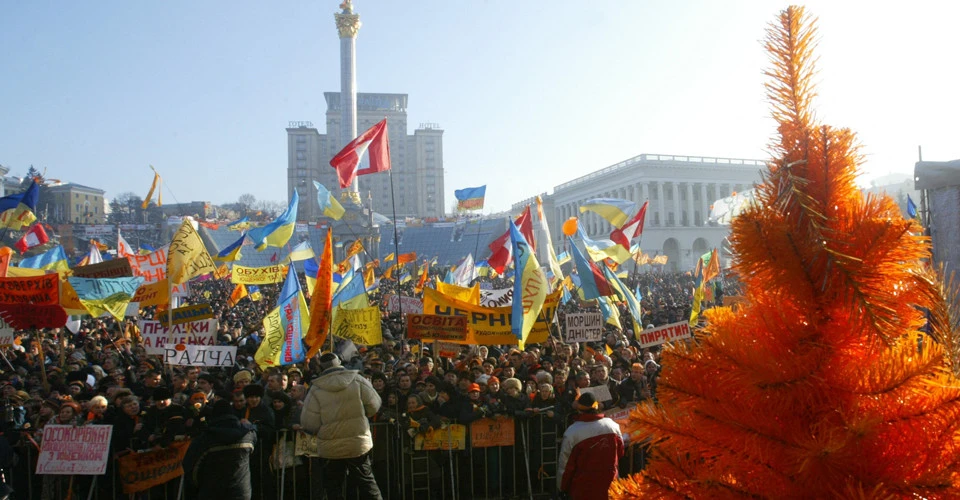
Dmytro Romaniuk, now an economist, entrepreneur, and statesman, was a first-year student at the Faculty of Economics in 2004. He became famous for throwing an egg at then Prime Minister Viktor Yanukovych who was running for president. The candidate's anecdotal reaction to the incident probably influenced the entire election campaign.
Dmytro explained his actions by saying that he wanted to demonstrate that the youth of Prykarpattia did not support Yanukovych, as was reported in the media.
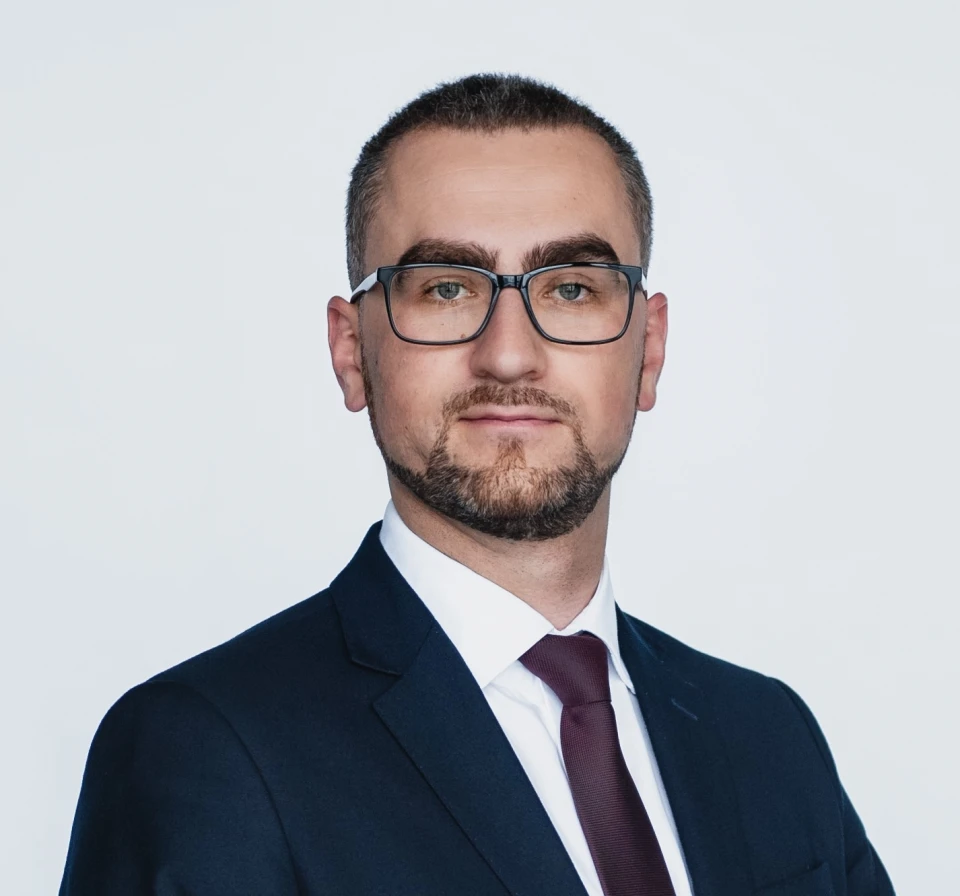
"At that time, freedom of speech was on a completely different level. The country 20 years ago looked completely different than it does today. At that time, the reason why students and the entire pro-Ukrainian environment protested was the high probability that a man with a criminal record had a chance to become president of Ukraine. We also clearly understood that he had a pro-Russian vector. And this was also a key point," Romaniuk recalls in a comment to Espreso.
He says that he was extremely impressed by the huge number of people on the Maidan in 2004.
"Recalling those events, I have quite positive emotions. The biggest achievement is that no blood was shed at that time. We gained independence in an evolutionary way. And then, in 2004, it was time to take the next step. Society demanded a more pro-Ukrainian and pro-independence stance from the political elites. Therefore, from the point of view of the goals set, everything ended with the desired result," said the participant of the Orange Revolution.
He adds that it is not surprising that young people and students are the driving force behind the Ukrainian revolutions.
"Young people have a more developed sense of justice. At this age, we are more involved and are inclined to take more radical steps. In addition, young people, when united, are more likely to take a stand and achieve a goal that is actually supported by the majority of society but may not be ready to be openly communicated," he added.
He holds the belief that Ukrainian society has already developed a valuable skill: protesting and opposing. Now, the focus should shift towards learning and creating, with everyone contributing conscientiously to their respective roles.
During the protests, the Verkhovna Rada declared no confidence in the Central Election Commission because the CEC's data differed significantly from the National Exit Poll. On December 3, the Supreme Court ruled to hold a second vote, in which Viktor Yushchenko won.
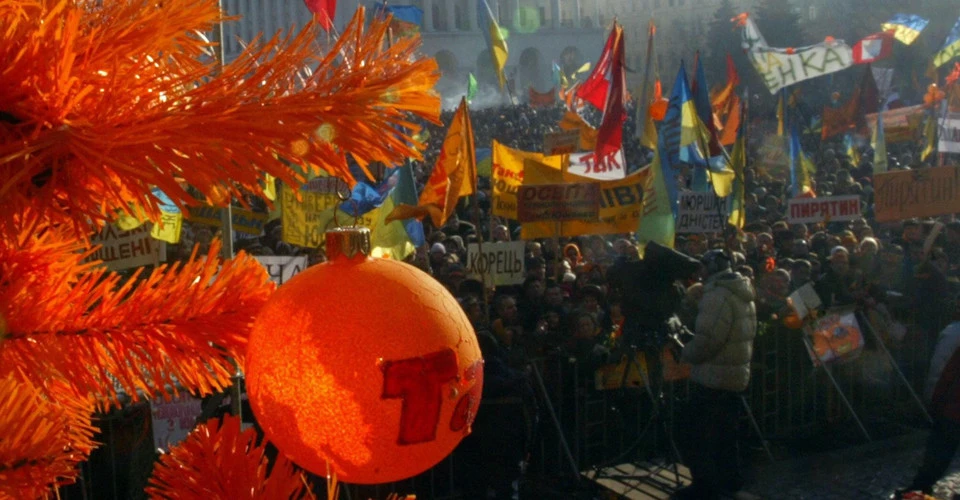
The Revolution of Dignity: romantic impulses that change history
In November 2013, on the anniversary of the Orange Revolution, several hundred people came to the Maidan to demand the signing of the Association Agreement with the EU.
Students played a pivotal role in the Revolution of Dignity, spearheading a large-scale student strike. The violent assault on students during the night of November 30 marked a turning point, transforming the protest from a student-led movement into a nationwide uprising. The demonstrations, initially termed Euromaidan, escalated into the Revolution of Dignity, ultimately resulting in President Viktor Yanukovych fleeing the country.
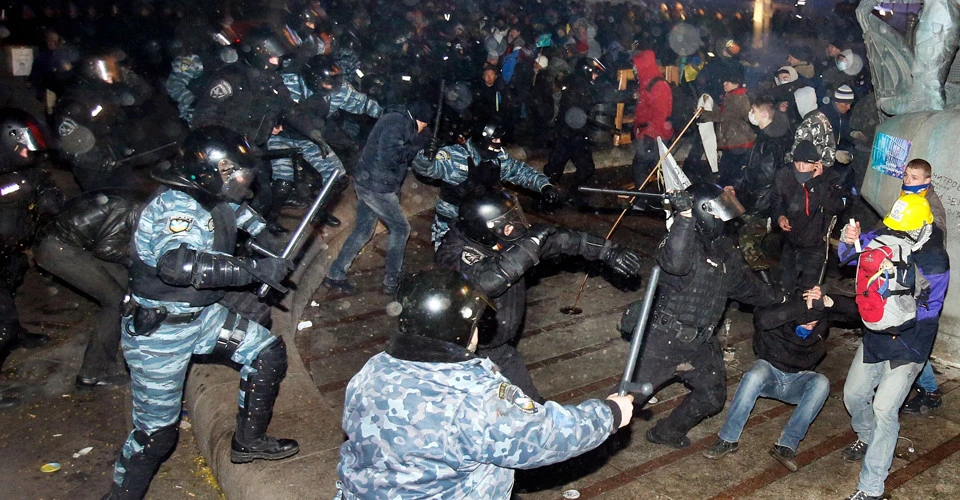
Yuriy Yatsenko, the Kremlin's political prisoner and a Lviv resident, spent over a year in Russian custody. Most of all, the Russians were interested in his participation in the Revolution of Dignity. He was a 5th year law student, an active participant in the protests. After the dispersal of the student Maidan on November 30, he was a volunteer medical service, transporting the wounded in ambulances from Kyiv to Lviv.
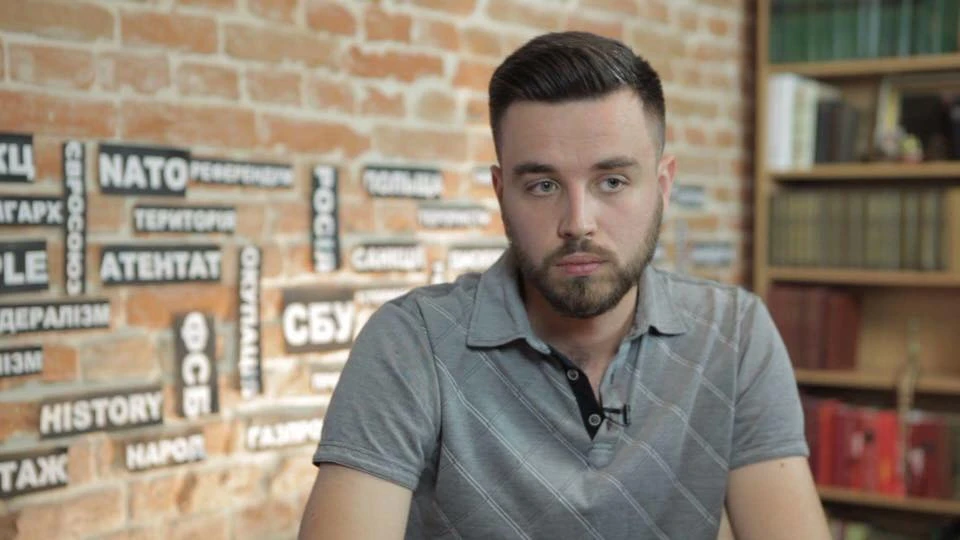
"I joined the Revolution of Dignity right away, back in November. Frankly speaking, at that time we probably did not fully understand what this Association Agreement was, what legal and budgetary implications, what consequences in international relations awaited us. It was more of an intuitive understanding: either moving towards the EU or moving in the opposite direction," Yatsenko explains to Espreso.
The trip to Kyiv looked like a romantic journey for the sake of high goals. There was no idea of the fatefulness of these events. After his first visit to the capital, Yuriy was on his way back home. On the way to Lviv, he heard that the students had been dispersed.
"My friends and I went back to Kyiv. I saw that such a large number of people had gathered, which is very rare in the history of Ukraine and in general. I saw these people. They were passionate people, mostly intelligent people, and to a large extent they were Kyiv residents. I was extremely delighted with the number of people. Then there was another moment - a few months later. Despite the fear of being shot, we were not afraid to stay there. There was such a strong inner spirit and strength of support that we were not afraid at all. This hardened me for the next events in my life, when I was arrested in Russia as a participant of the Maidan," Yuriy Yatsenko recalls.
Despite the important role of students in the Revolution of Dignity and the fact that Yuriy himself studied at the university, he does not consider youth to be a determining factor for protest moods.
"Desperate steps are not only related to age, but more to personal beliefs - there are families that inspire. Now there are those who have been inspired by our modern heroes and realized that values are worth fighting for. I think that both the Orange Revolution and the Revolution on Granite had a great influence. Gradually, after each of the revolutions, more people were born in Ukraine who discussed about these events within their environments. After the full-scale invasion, I both expect and observe a significant improvement in Ukrainian society in the context of understanding its identity and historical memory," says the former political prisoner.
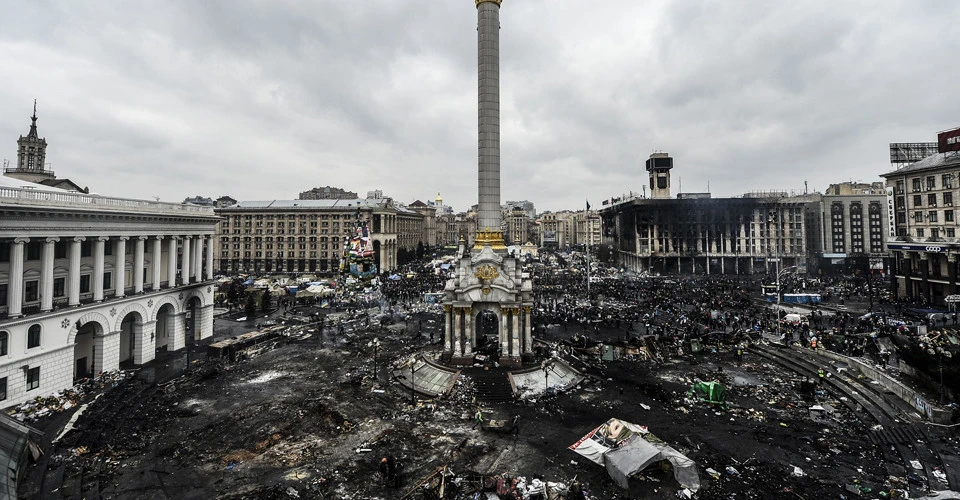
Recalling those events, he says that he feels proud to be involved in the historical making process.
"Now, 10 years later, I see how historically important it was. That is, my action of going to the Maidan in romantic impulses and intuitive feelings that it should be so, had a great impact on the course of the history of all mankind. I now see this in the context of the wars that are taking place between the countries of the democratic camp and authoritarian countries," Yuriy Yatsenko emphasizes.
- News













































